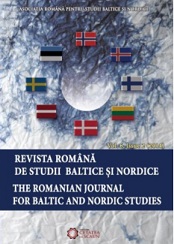Knut Hamsun between cultural Germany and political Germany
Knut Hamsun between cultural Germany and political Germany
Author(s): Crina LeonSubject(s): History of ideas, Other Language Literature
Published by: Asociatia Romana pentru Studii Baltice si Nordice
Keywords: Norwegian literature; Knut Hamsun; Germany; culture; politics; identity;
Summary/Abstract: Knut Hamsun (1859-1952) is a Norwegian writer who managed to win a place in world literature by the side of the playwright Henrik Ibsen. Hamsun was a complex figure: he was the Nobel Prize laureate in Literature of 1920 but he was also charged with treason after World War II; he wrote stories drawn from Nordland (in Northern Norway), but he also supported National Socialism. That is why, we will make a distinction between culture and politics, between Hamsun as a literary writer and Hamsun as the author of a series of articles in favour of the Nazis. Beyond the controversial side of his life, which started in the 1930s, our aim is to analyze the role Germany played on the cultural side. Germany was the first country where Hamsun became a successful writer in the 1890s due to a wide readership and the support of the publisher Albert Langen, among others. In turn, Hamsun was an admirer of German culture and of the German nation that gained power in the 20th century.
Journal: Revista Română de Studii Baltice şi Nordice
- Issue Year: 6/2014
- Issue No: 2
- Page Range: 53-61
- Page Count: 9
- Language: English

